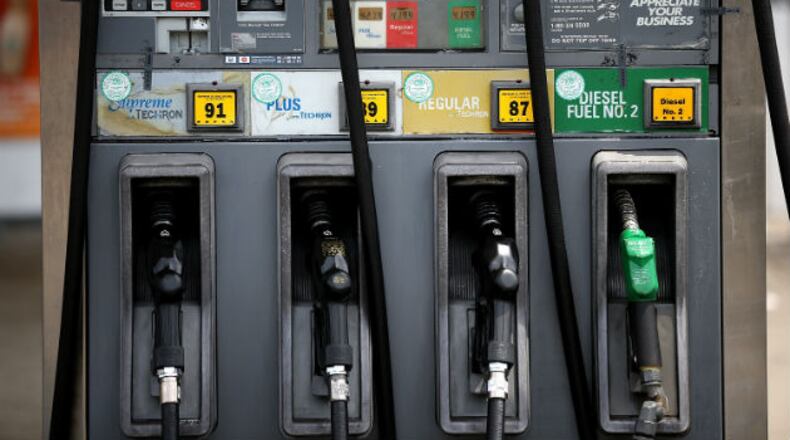The gas tax increase would be phased in over two years while the diesel tax hike would be phased in over three years — both starting Oct. 1. The gas tax increase falls short of Gov. Mike DeWine’s request for an 18-cent hike, starting July 1 and tying it to inflation so it would automatically rise.
The governor is making the case that an 18-cent per gallon tax increase is the bare minimum needed to address dangerous roads and intersections. “If you think the roads are bad now, you haven’t seen anything yet,” DeWine said this week in his State of the State address.
"The House-passed bill is far from ideal, but I appreciate the strong bipartisan acknowledgement that our state and local jurisdictions have a major revenue shortage to deal with vital transportation needs,” DeWine said Thursday. "I am very open to dialogue with the legislature on this issue, but I continue to believe that our proposal as introduced provides the money it takes to do the job right. I plan to work with the Senate to improve the House-passed bill and work toward a final agreement that funds vital maintenance, new construction, promotes jobs, makes our state more competitive, and enhances safety for the driving public."
Under the latest version of the bill, gas tax revenue would be split 55/45 between state and local governments, compared with the current 60/40 split. Electric vehicle owners would pay a $200 annual fee while hybrid owners would be charged $100. Public transit would be given $100 million in state funding, up from the current $33 million.
The bill would also make a number of transportation-related policy changes: vehicles would no longer be required to have a front license plate; riding a skateboard while holding onto a car would be outlawed; it would be more difficult and expensive for cities to issue tickets using traffic cameras; and the Ohio Department of Transportation could seek new rules on imposing variable speed limits based on highway conditions, such as weather or traffic congestion.
Related: DeWine, lawmakers at odds over gas tax increase
Related: Lawmakers seek to eliminate front license plate requirement
The bill now moves to the Ohio Senate for consideration. The House and Senate must agree on a final version later this month. It needs to be signed into law by March 31 so it can take effect July 1 when the new state fiscal year starts.
House Finance Committee Chairman Scott Oelslager, R-Canton, described the bill as an economic development package, noting that for every $1-billion spent on transportation infrastructure there are 27,000 jobs created.
“It is no doubt probably one of the major jobs bills that we have,” said state Rep. Jack Cera, D-Bellaire. He added that while voting for tax increases isn’t easy, they’re necessary.
The last gas tax hike came in 2005. Advocates for increasing the tax note that inflation has eroded the buying power of Ohio’s 28-cent gas tax, Ohioans are driving more miles and putting more wear and tear on the roads and cars are more fuel efficient which means the tax is bringing in less money per mile driven.
Related: Ohio lawmakers target use of traffic, red light cameras
Related: Riding a skateboard while holding a car could become illegal in Ohio
How our area lawmakers voted:
No: Niraj Antani, John Becker, Bill Dean, Candice Keller, Kyle Koehler, Jena Powell, J. Todd Smith, Fred Strahorn, Nino Vitale.
Yes: Tom Brinkman, Jim Butler, Sara Carruthers, George Lang, Scott Lipps, Susan Manchester, Rick Perales, Phil Plummer, Paul Zeltwanger.
RELATED: Trucking industry must overcome challenges to continue growth
About the Author

